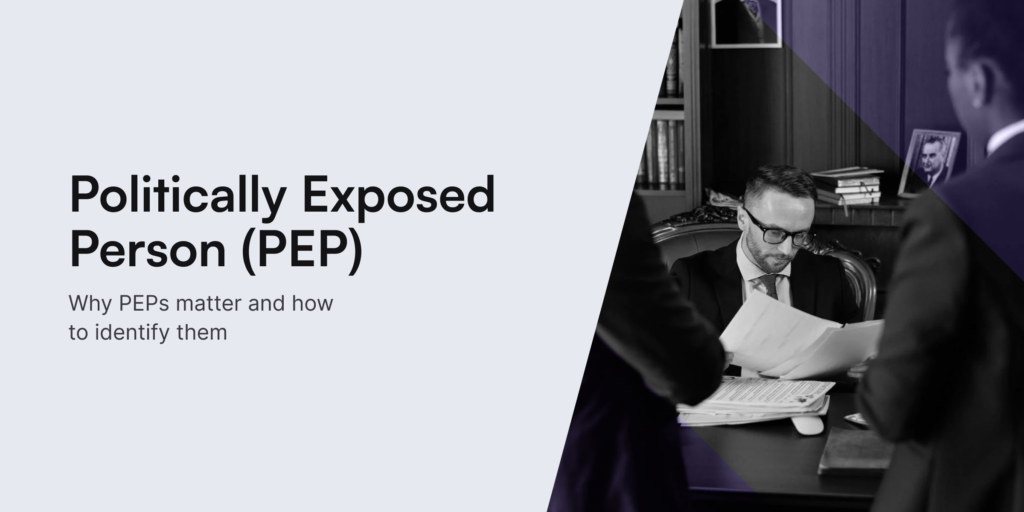
January 28, 2024
What is a Politically Exposed Person (PEP)?
The verification of a Politically Exposed Person, or a PEP, is a mandatory requirement in regards to Know Your Customer (KYC) and Anti-Money Laundering (AML) regulations. PEPs hold greater power due to their position of influence, which makes them more susceptible to fraud, including money laundering. This makes them higher-risk customers that need to be treated with an appropriate level of due diligence. Read more.

January 28, 2024
KYC in Banking Explained
Know Your Customer or KYC in banking refers to the series of identity verification checks designed to verify customers. The KYC process helps banks and other financial institutions confirm that the person is who they say they are when registering on their online platform and opening a new account. But KYC doesn’t stop at the onboarding stage of the customer’s relationship. Read more.

January 5, 2024
KYC in Social Media: Less Anonymity = More Security?
It’s as easy as 1-2-3 to create a new profile on any standard social media platform. This makes social networking and online dating not only a great way to connect with people but also to get blindsided by numerous scams. The lack of identity verification and KYC in social media means bad actors can create fake accounts, steal identities, and remain completely anonymous. This harms both users as well as businesses that use social media for their marketing campaigns. Read more.
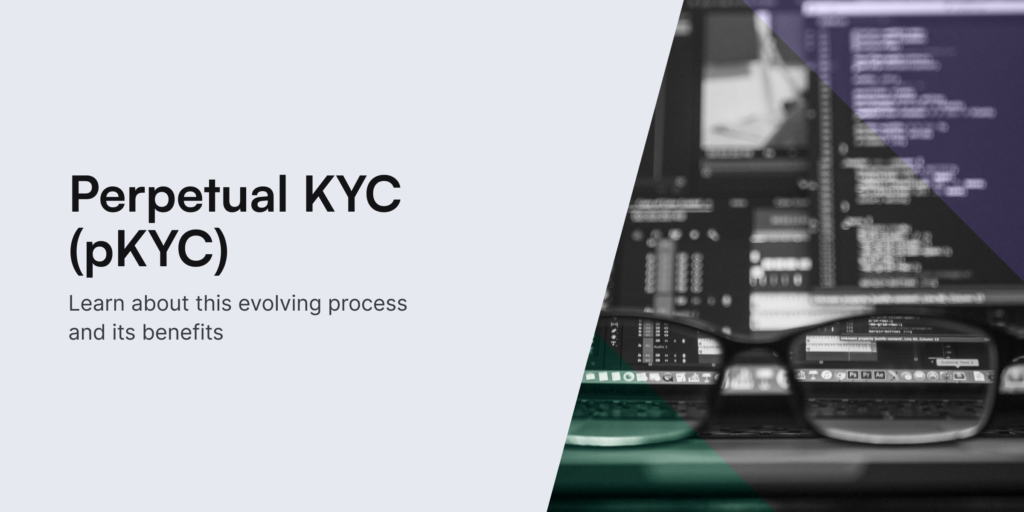
December 22, 2023
What is Perpetual KYC (pKYC)?
Perpetual KYC, or pKYC, represents a Know Your Customer (KYC) practice that combines the verification of a customer’s identity and risk status. These checks help identify and prevent financial crimes in a more effective and efficient way. They are very important in regulated sectors, as KYC and KYB (Know Your Business) help build a proper fraud prevention strategy. Learn more.
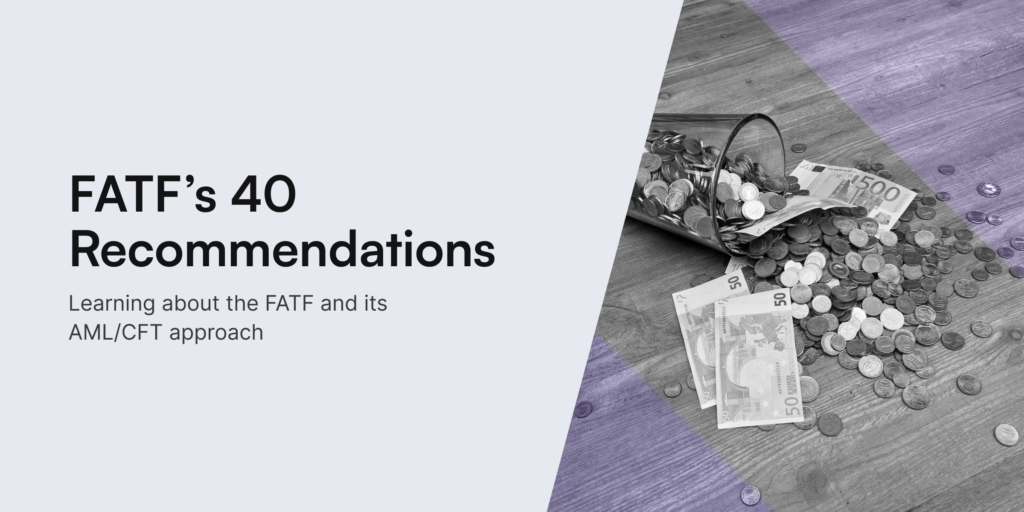
December 20, 2023
40 Recommendations of the FATF — Overview
The Financial Action Task Force, or the FATF, is a global regulator and a leading intergovernmental organization that aims to help companies address money laundering and terrorism financing issues. The FATF provides guidance, also known as 40 Recommendations, expecting its wide list of member jurisdictions to adopt and implement a unified AML/CFT approach. By doing so, regulated entities can effectively establish a robust anti-money laundering program and contribute to the ongoing battle against fraud and financial crime. Read more.
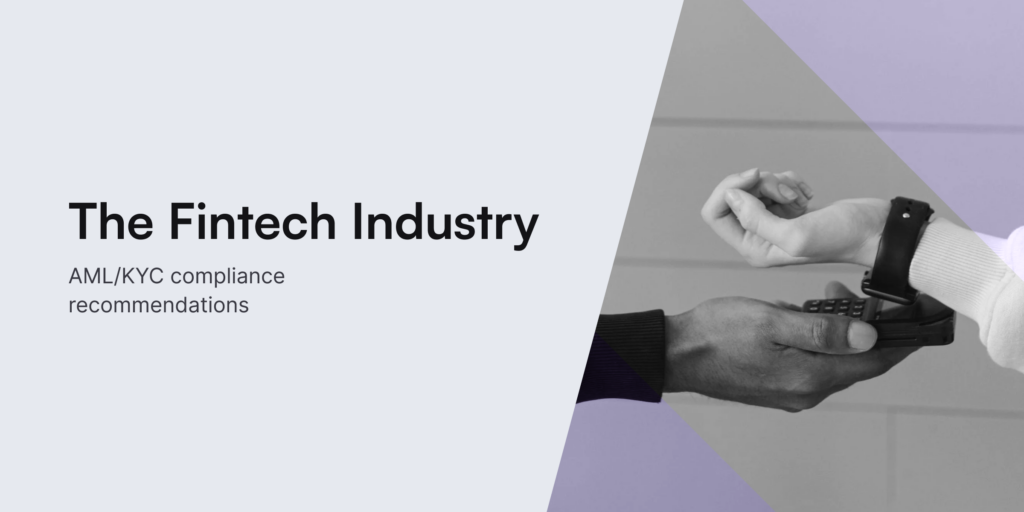
December 14, 2023
AML/KYC Guidelines for Fintech Companies
By now, we all know what the buzzword “Fintech” means. It includes companies like Visa or PayPal, products such as crypto, and other services like Venmo. But while it is all shiny and bright on the outside, internal business operations, especially AML/KYC compliance, aren’t easy for fintechs. The growing volumes of transactions and, naturally, all of the complex fraud schemes make it challenging for financial service providers to stay compliant and, at the same time, provide an effortless user experience. This is where automated tools like identity verification and AML screening come in handy. Read more.
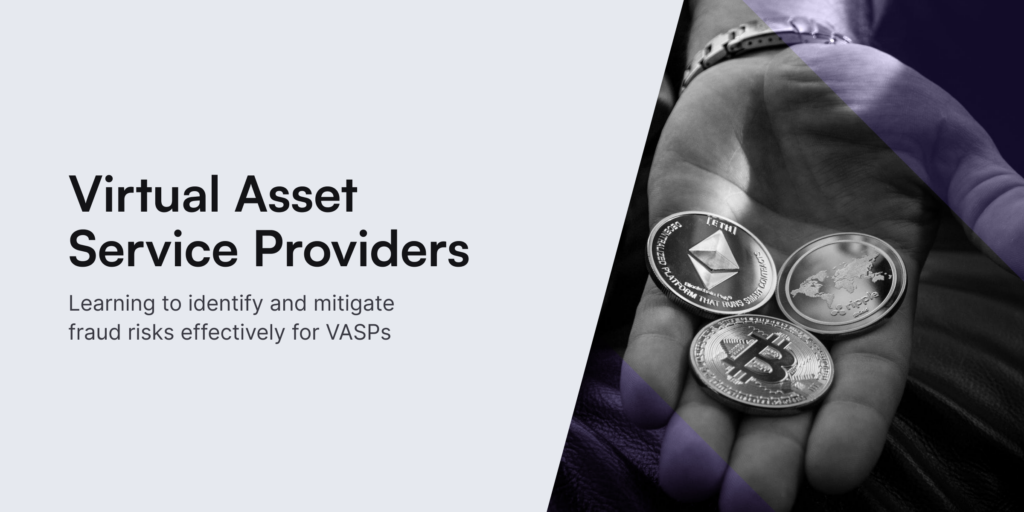
December 6, 2023
Virtual Asset Service Providers: The FATF Travel Rule Obligations
Virtual asset service providers, or VASPs, are entities that carry out exchanges between different forms of virtual assets or between virtual assets and fiat currencies. There are many different virtual assets out there. Today, they’re like digital representations of value that can be traded, transferred digitally, or even employed for payment and investment purposes. Read more.

November 30, 2023
KYC for Forex Trading: Importance and Challenges
An increasing number of individuals engage in forex trading on a daily basis, drawn by the potential to earn a consistent income. Despite the ongoing high liquidity and global market volatility, forex trading volumes have steadily risen over the years. However, the industry isn’t immune to illegal activities, such as money laundering and ATO fraud. These illicit actions have exposed the sector’s previously perceived anonymity, highlighting the associated risks. We talk more about KYC compliance and how identity verification can help prevent forex fraud.
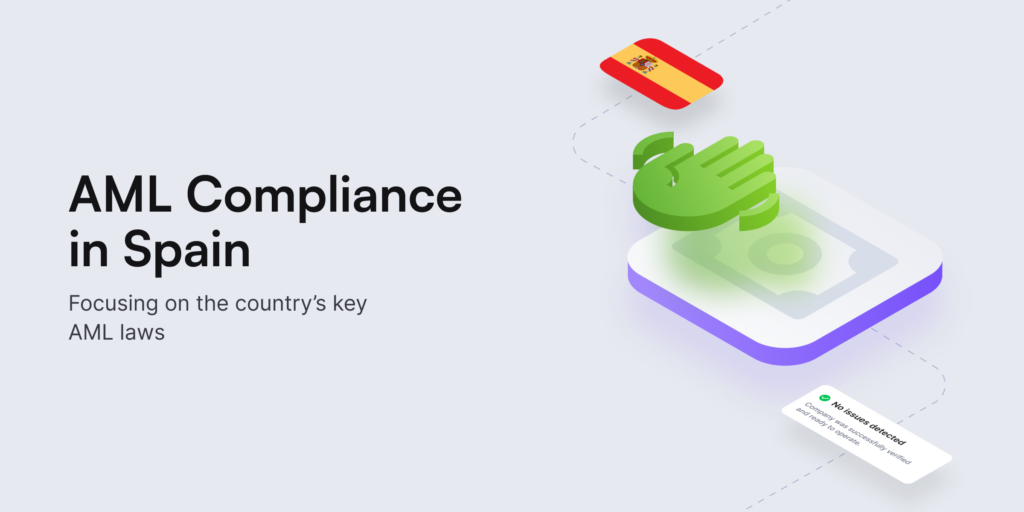
November 29, 2023
AML Compliance in Spain
AML compliance penalties have made many breaking stories in the news this year, with some European financial institutions making the cut. As these non-compliance fines sometimes reach millions, many countries, including Spain, have increased their focus on strengthening AML measures. Read more to learn how to achieve AML compliance in Spain and fight financial crime more effectively.
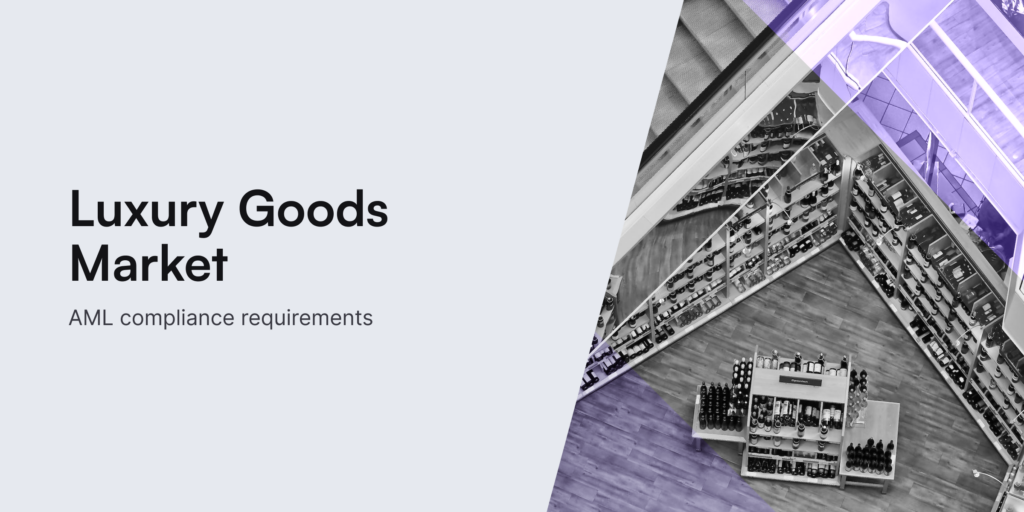
November 23, 2023
AML Compliance for the Luxury Goods Market
The luxury goods market has had its fair share of interest both from buyers and money launderers. That’s why it’s no longer a surprise if the news is filled with a headline about a money laundering scandal or a related financial crime involving a luxury brand selling jewelry, yachts, private jets, etc. In this blog post, we explore the key ways criminals use high-value commodities as channels for their crimes and dive into AML compliance specifics.
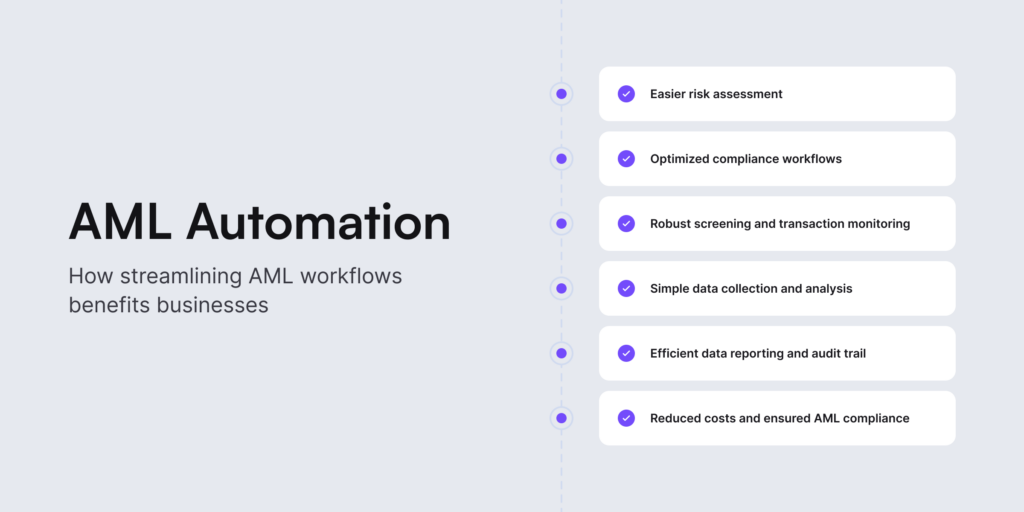
November 20, 2023
AML Automation: Streamlined Compliance 101 for Businesses
The inability to verify certain types of documents, lack of efficiency in various compliance-related processes, missed updates, and no timely feedback on reported issues — yet, the list goes on. If your company has ever experienced any of these AML challenges, just know that you’re not alone. Thankfully, AML automation has evolved, pushing AI and other advanced technologies to assist businesses in streamlining their operations without any hassle.
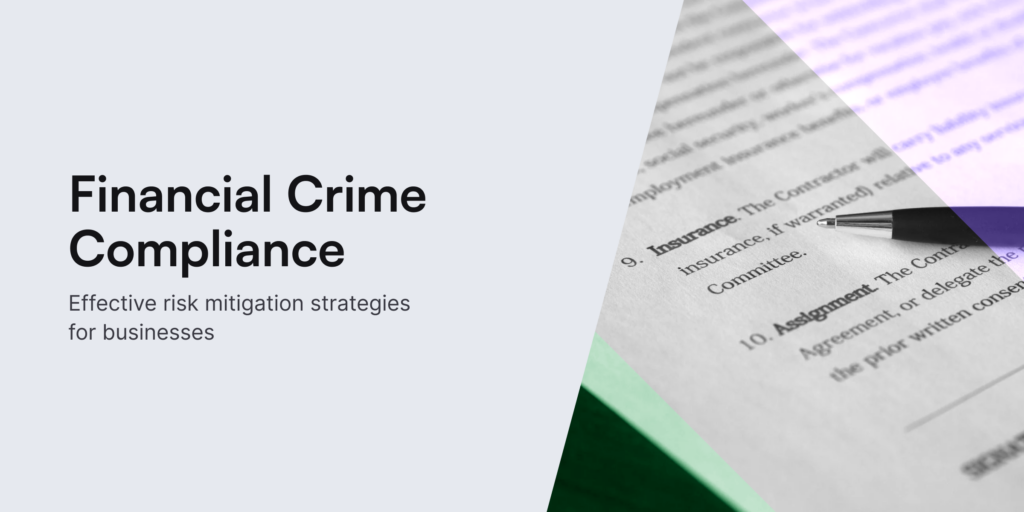
November 15, 2023
Financial Crime Compliance: Comprehensive Business Practices
Whether you’re a bank, fintech company, MSB, or any financial entity — you simply can’t avoid financial crime compliance. To stay in line with ever-evolving regulatory rules, businesses must implement effective procedures and protect their reputation, customers, staff members, and investors. In this blog post, we pinpoint the main red flags when it comes to illicit activities, providing insights to shield your operations from potential damage and the risk of becoming a target for money laundering.
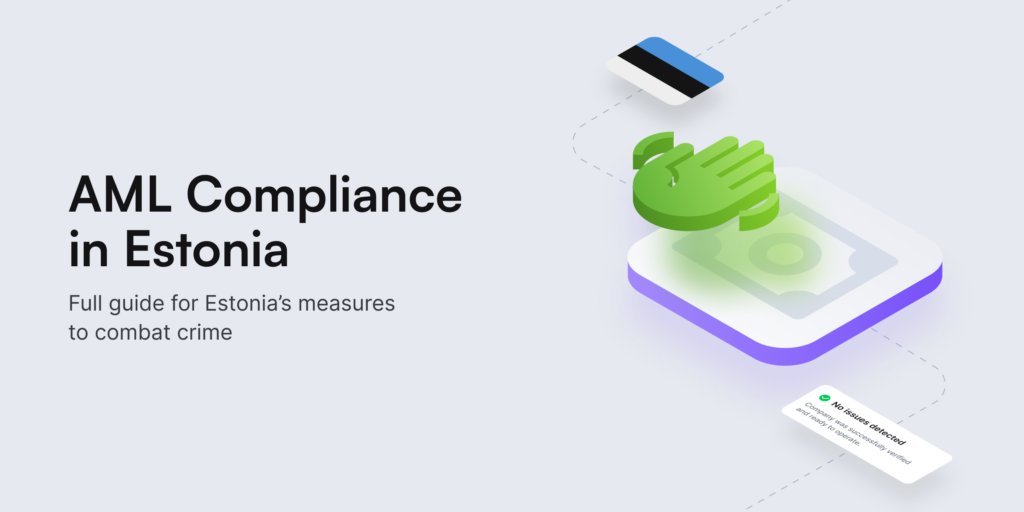
November 9, 2023
AML/CTF Compliance in Estonia [Guide]
In the past decade, Estonia has become an attractive choice for fintech startups and financial institutions aiming to broaden their operations in Europe. However, this “rising star” title burdens companies to stay compliant with the ever-evolving AML/CTF compliance requirements, which we explore in this in-depth article.
